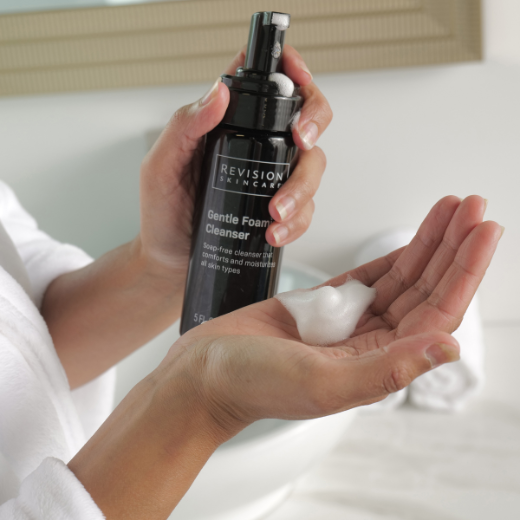How Seasonal Changes Impact the Efficacy of Your Skincare Ingredients
Posted by Ellie Swain on Oct 20th 2023
As the seasons change, so should our skincare routines. But have you ever stopped to think about how the seasonal shifts affect the ingredients' performance in your favorite products?
It's not just about switching from a heavy winter cream to a lighter summer lotion. The efficacy of the active ingredients you count on can vary with the weather. Let's delve into this topic and figure out how to keep your skin radiant year-round.
Humidity Levels and Hydration
Summer brings a surge of humidity, while winter tends to be drier. Humidity has a direct effect on how your skin retains moisture. Ingredients like hyaluronic acid, which is moisture-binding, work better when there's more moisture in the air to pull into your skin.
But, during the drier months, hyaluronic acid might not perform at its peak. This doesn't mean you should ditch hyaluronic acid in the winter. Rather, you might want to add a stronger ingredient into your skincare routine like shea butter to seal in the moisture. The lovely Tuel Calm Soothing Moisture Cream is packed with soothing ingredients, including shea butter, avocado, aloe vera, and green tea.
Temperature and Texture
Have you ever noticed how some products feel thicker in the winter and thinner in summer? Temperature changes can alter the texture of your skincare products, which can influence how well they’re absorbed.
Remember that ingredients like vitamin C or retinol may not penetrate the skin as effectively if the product's texture changes. Be sure to store your skincare products in a cool, dark place to keep the ingredients stable, no matter the weather.
Sun Exposure and Antioxidants
The warmer months mean more time in the sun, which can lead to oxidative stress on the skin. If you're using antioxidant-rich ingredients like vitamin C or green tea extract, you might find they work better in the summer because your skin needs more help fighting off free radicals.
In the winter, when sun exposure is minimal, these antioxidants are still beneficial but might seem less effective simply because their demands are reduced.

Oil Production and Actives
Your skin's oil production can fluctuate with the seasons. In warmer months, your skin might become oilier, affecting how well certain ingredients work. Ingredients that control oil production, such as salicylic acid or niacinamide, could become your best friends in summer.
On the flip side, these ingredients might be too drying in winter. Instead, opt for moisturizing ingredients like ceramides and fatty acids that are more effective during the colder months.
Seasonal Allergies and Sensitivity
Spring and autumn often come with a host of allergens that can make your skin more sensitive. If you're using potent ingredients like glycolic acid or benzoyl peroxide in your skincare, you might notice increased irritation during allergy season.
This could be a good time to tone it down and switch to gentler ingredients like aloe vera or chamomile. The Revision Gentle Foaming Cleanser contains both chamomile and aloe vera, comforting and caring for all skin types.

The pH Factor
The pH level of your skin can also vary with the seasons, mainly due to environmental stressors like wind and air pollution. Ingredients are formulated to work best at specific pH levels. For example, organic acids such as lactic acid have higher efficacy at a lower pH level.
So, if seasonal changes throw off your skin's pH, you may find that some ingredients are less effective. Using a pH-balanced toner can help reset your skin and make your ingredients work better, no matter what the season is.
Tips for a Successful Seasonal Skincare Transition
Understanding how seasonal changes affect your skincare ingredients is the first step toward a more effective routine. Knowledge is power, and, in this case, it's the power to have beautiful, healthy skin all year long.
If you're introducing new ingredients into your skincare routine to adapt to the shifting seasons, always remember to do a patch test first. This will help you avoid potential irritations or adverse reactions.
When in doubt, consulting with a dermatologist or skincare professional is always a good idea. They can offer personalized advice on how your skin reacts to environmental factors. And lastly, be patient. Your skin may take a couple of weeks to adjust to a new routine and for the ingredients to show their full effects.
Remember, seasonal changes do more than just influence your wardrobe choices; they also affect how well your skincare ingredients work. With a little attention and adaptation, you can adjust your skincare routine to keep those active ingredients performing at their best, no matter what mother nature throws your way.
Do you want more advice? Here’s our guide on skincare for different altitudes.

